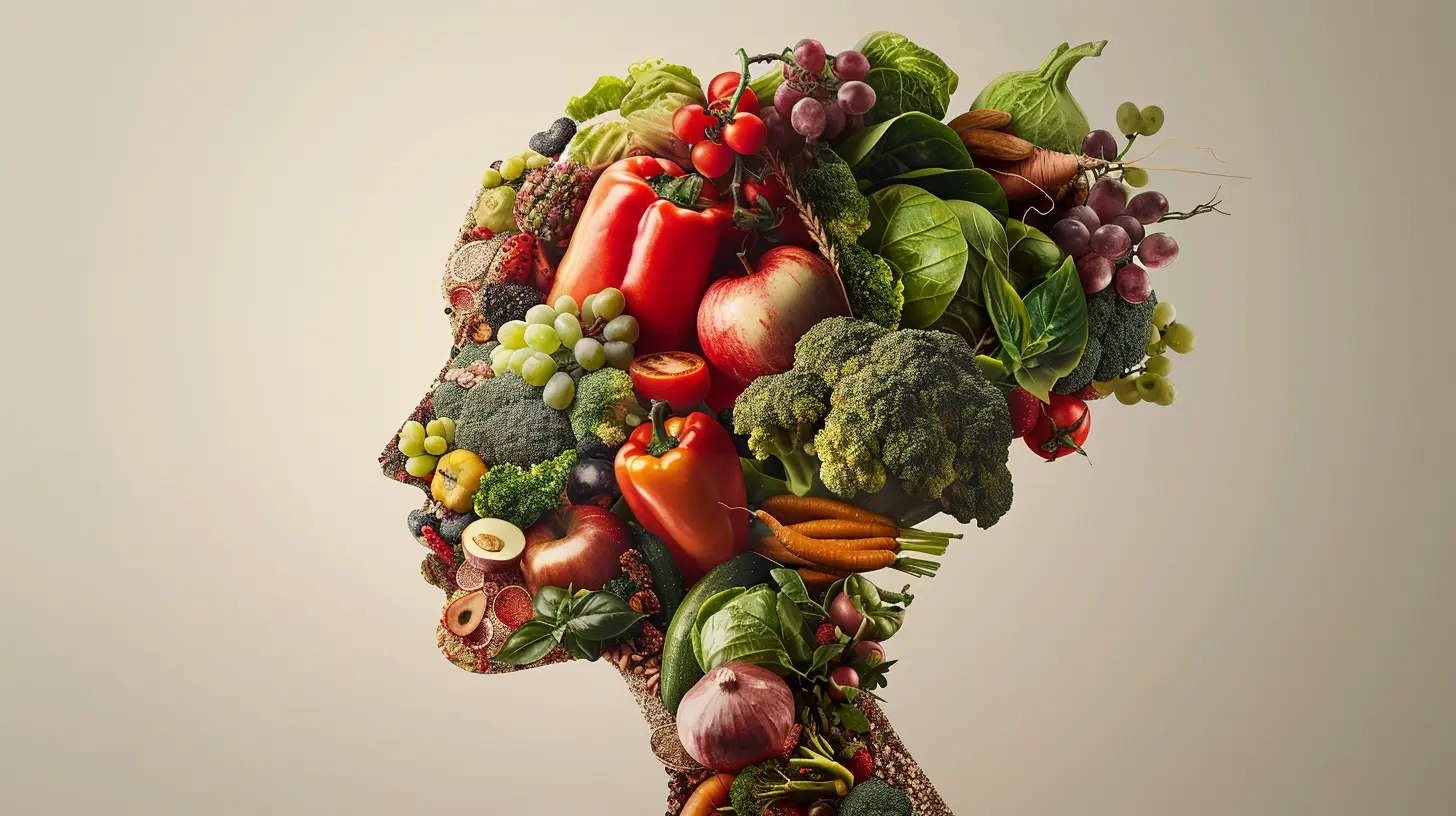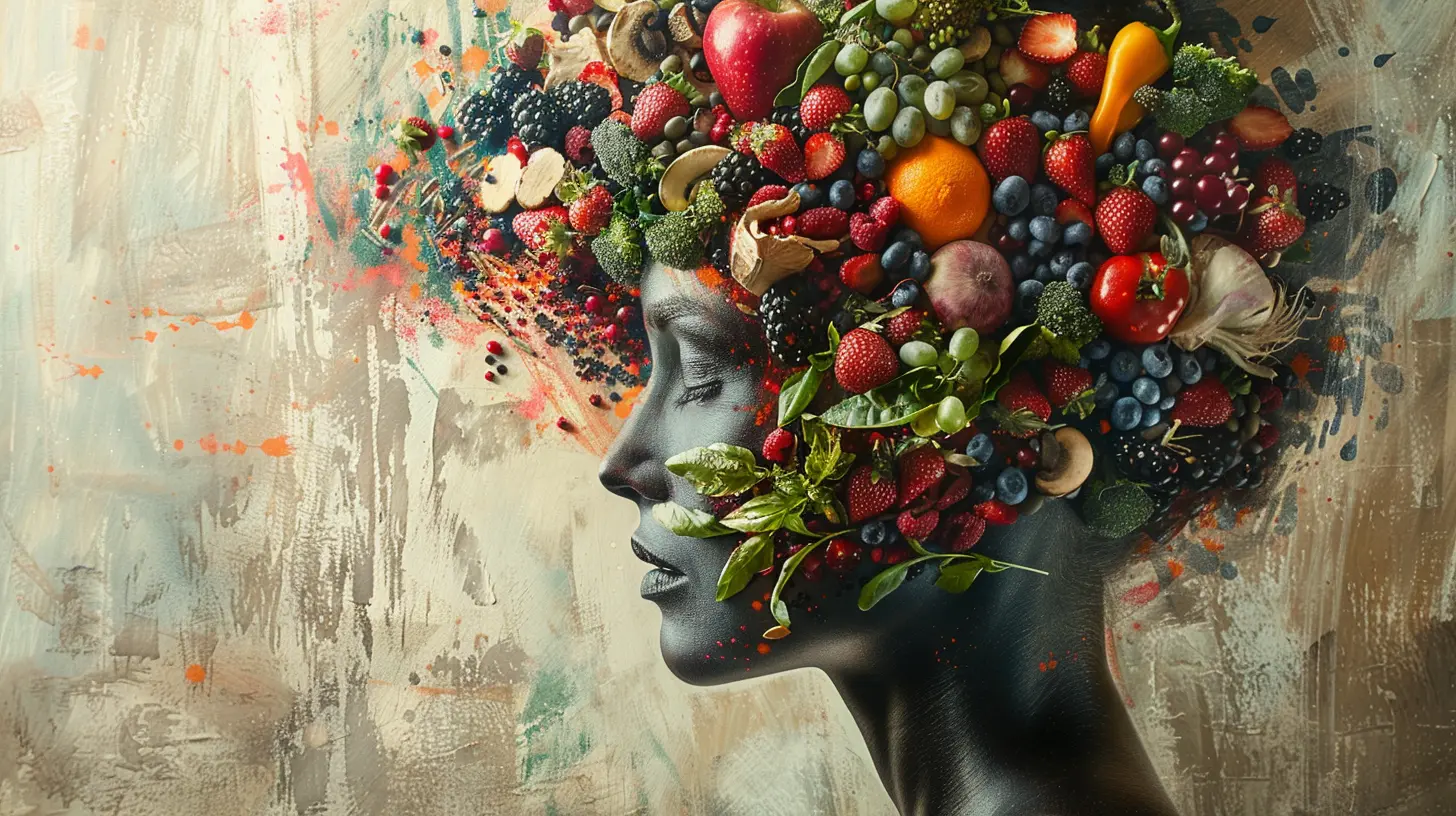The Role of Nutrition in Mental Health and Self-Care
12 March 2025
We’ve all heard the phrase “you are what you eat,” but have you ever stopped to wonder how true that really is? Sure, we know that eating well helps our bodies function efficiently, but how much of an impact does nutrition have on our mental health? Spoiler alert: A lot!
In today’s fast-paced world, we often overlook the connection between what we eat and how we feel. Nutrition doesn’t just fuel our bodies—it powers our brains too. If you’ve ever felt irritable after skipping breakfast or experienced brain fog after a fast-food binge, you’ve witnessed firsthand how much food influences our moods and mental clarity.
But let’s take it a step further because mental health is more than just feeling good or bad on a given day. It’s about maintaining emotional balance, managing stress, and nurturing your overall sense of well-being. And believe it or not, the foods you choose to eat (or not eat) play a starring role in this process. So, grab a snack (hopefully a healthy one!) and let’s dive into the fascinating relationship between nutrition, mental health, and self-care.

The Gut-Brain Connection: More Than Just a Feeling
Let’s start with a little biology lesson. Ever heard of the gut-brain connection? No, it’s not some trendy wellness buzzword—it’s an actual, scientifically proven phenomenon. Your gut and brain are in constant communication through what’s known as the gut-brain axis. This is a two-way street where your gut sends signals to your brain and vice versa.What’s fascinating is that your gut houses trillions of bacteria, known collectively as your gut microbiome. These little guys aren’t just freeloaders—they play a crucial role in digestion, immune function, and yes, even your mood. In fact, about 90% of serotonin, the “feel-good” neurotransmitter, is produced in your gut. So, when your gut is unhappy (due to poor diet, for example), it can send distress signals to your brain, manifesting as anxiety, depression, or irritability.
Probiotics and Prebiotics: The Gut’s Best Friends
If you want to keep your gut happy, it’s all about balance. Probiotics are the “good” bacteria that help maintain a healthy gut environment. You can find them in fermented foods like yogurt, kefir, sauerkraut, and kimchi. Prebiotics, on the other hand, are fibers that feed these good bacteria. Think of them as the fertilizer that helps your gut garden grow. Foods like garlic, onions, bananas, and whole grains are rich in prebiotics.When your microbiome is in tip-top shape, your brain benefits too. Studies have shown that a balanced gut can reduce symptoms of anxiety and depression, while an imbalanced one may contribute to mental health issues. So, next time you’re feeling down, instead of reaching for a sugary treat, maybe try some yogurt with fruit or a bowl of miso soup.

Nutrients That Boost Mental Health
Now that we’ve established the gut-brain link, let’s talk about specific nutrients that are particularly important for mental health. You wouldn’t expect your car to run smoothly on the wrong type of fuel, right? The same goes for your brain—it needs the right nutrients to function at its best.Omega-3 Fatty Acids: The Brain’s Best Friend
Omega-3s are a type of healthy fat that’s essential for brain health. They’re found in high concentrations in the brain’s cell membranes and play a key role in regulating neurotransmitters like dopamine and serotonin. Low levels of omega-3s have been linked to higher rates of depression, anxiety, and even cognitive decline.So, where can you find these brain-boosting fats? Fatty fish like salmon, mackerel, and sardines are excellent sources. Not a fan of fish? No worries—flaxseeds, chia seeds, and walnuts are plant-based sources of omega-3s.
B Vitamins: The Mood Regulators
Vitamin B6, B12, and folate are crucial for producing neurotransmitters like serotonin and dopamine, which help regulate mood. A deficiency in these vitamins has been linked to an increased risk of depression and anxiety. You can get your B vitamins from a variety of foods, including whole grains, eggs, dairy products, and leafy green vegetables.If you’re feeling low or anxious, it might be worth checking whether you’re getting enough B vitamins in your diet. A simple blood test can often reveal a deficiency, which can easily be corrected with dietary changes or supplements.
Antioxidants: The Brain Protectors
Oxidative stress occurs when there’s an imbalance between free radicals (unstable molecules) and antioxidants in your body. This can lead to inflammation and damage to your brain cells, contributing to mental health disorders like depression and anxiety.Antioxidants, such as vitamins C and E, can help neutralize free radicals and protect your brain cells. Foods rich in antioxidants include berries, citrus fruits, nuts, seeds, and dark leafy greens. Think of these foods as little bodyguards for your brain, keeping it safe from harm.
Magnesium: The Stress Buster
Magnesium is known as the “relaxation mineral” because it helps regulate your body’s stress response. Low magnesium levels have been associated with increased anxiety, irritability, and even insomnia. Foods high in magnesium include spinach, almonds, black beans, and dark chocolate (yes, chocolate!).If you often feel tense or stressed out, boosting your magnesium intake might help you feel more relaxed and grounded.

Food and Mood: The Emotional Impact of What You Eat
We’ve all experienced the highs and lows of food-induced mood swings. Maybe you felt elated after eating a delicious meal, or perhaps you’ve experienced the dreaded “sugar crash” after indulging in too many sweets. This isn’t just in your head—what you eat really does affect your emotional state.The Blood Sugar Rollercoaster
Eating too much sugar or refined carbs can send your blood sugar levels on a wild ride. At first, you might feel a burst of energy, but it’s usually followed by a crash that leaves you feeling tired, irritable, and even anxious. This constant up-and-down can take a toll on your mood and mental health.To avoid the blood sugar rollercoaster, focus on eating complex carbohydrates like whole grains, fruits, and vegetables. These foods release sugar into your bloodstream more slowly, helping to keep your energy and mood stable throughout the day.
Comfort Foods: Friend or Foe?
We all have our go-to comfort foods when we’re feeling down. Whether it’s mac and cheese, ice cream, or pizza, these foods seem to offer a quick fix for emotional distress. But while they might provide temporary relief, they often lead to long-term consequences for your mental health.Highly processed “comfort” foods are typically loaded with unhealthy fats, sugars, and additives, which can increase inflammation in your body and brain. Over time, this can contribute to feelings of depression and anxiety.
Instead of reaching for junk food, try to find healthier ways to self-soothe. A handful of nuts, a smoothie, or even a piece of dark chocolate can offer both comfort and nourishment without the negative side effects.

Self-Care Through Nutrition: Taking Responsibility for Your Mental Health
When you think of self-care, what comes to mind? Bubble baths? Meditation? Taking a day off to binge-watch your favorite shows? While all of these things can be great ways to relax, it’s important to remember that self-care starts with what you put into your body.Mindful Eating: Tuning Into Your Body’s Needs
In our busy lives, it’s easy to eat mindlessly—grabbing fast food on the go, snacking while working, or eating in front of the TV. But mindful eating can be a powerful form of self-care. It’s about slowing down, paying attention to your body’s hunger and fullness cues, and making conscious choices about what you eat.When you’re mindful about your food choices, you’re more likely to nourish your body with the nutrients it needs to thrive. You’ll also be more attuned to how certain foods make you feel, allowing you to make adjustments that support your mental health.
Meal Planning: Setting Yourself Up for Success
Let’s be real—eating healthy can be challenging, especially when life gets busy. That’s where meal planning comes in. Taking the time to plan your meals for the week can help you stay on track with your nutrition goals and avoid the temptation of unhealthy convenience foods.Meal planning doesn’t have to be complicated. Start by choosing a few nutritious recipes you enjoy, make a grocery list, and set aside time to prep your meals in advance. This simple act of self-care can make a big difference in how you feel both physically and mentally.
Hydration: Don’t Forget the Basics
We often focus so much on food that we forget about one of the most important aspects of nutrition: hydration. Your brain is about 75% water, so staying hydrated is crucial for optimal brain function. Dehydration can lead to symptoms like fatigue, poor concentration, and irritability.Make sure you’re drinking plenty of water throughout the day. If plain water doesn’t excite you, try adding a slice of lemon, cucumber, or mint for a refreshing twist.
Final Thoughts: Nourish Your Mind, Nourish Your Life
When it comes to mental health, there’s no one-size-fits-all solution. But one thing is clear: nutrition plays a significant role in how we feel, think, and cope. By making mindful food choices and ensuring your diet is rich in brain-boosting nutrients, you’re not just fueling your body—you’re also taking an active role in caring for your mental health.So, the next time you’re feeling stressed, anxious, or down, take a moment to reflect on your diet. Are you nourishing your body with the right foods? If not, it might be time to make some adjustments. After all, you can’t pour from an empty cup, and the same goes for your mental well-being. Fill your cup with the right nutrients, and watch as your mental health (and life) starts to flourish.
all images in this post were generated using AI tools
Category:
Self CareAuthor:

Alexandra Butler
Discussion
rate this article
8 comments
Fallon Marks
Great insights! Nutrition truly impacts mental health; small dietary changes can lead to significant benefits.
April 4, 2025 at 2:50 PM

Alexandra Butler
Thank you! I'm glad you found the insights valuable. Indeed, even small dietary adjustments can make a big difference in mental well-being.
Sylas McKibben
Feed your brain, it craves kale and kindness!
March 31, 2025 at 3:38 AM

Alexandra Butler
Thank you! Nourishing our bodies with healthy foods like kale, along with practicing kindness, can significantly boost our mental well-being.
Kassandra McDowney
“Embracing a nutritious diet is a powerful step towards nurturing our minds. Let’s prioritize our mental well-being with every bite, fostering resilience and positivity in our daily lives!”
March 30, 2025 at 4:37 AM

Alexandra Butler
Absolutely! Nutrition plays a crucial role in mental health, and every mindful choice we make can enhance our well-being. Let's nourish our minds together!
Wade Whitley
Ever wonder if your brain prefers kale over chaos? Let’s treat our minds like the quirky garden they are—nourish them with good vibes and greens! Who knew self-care could be a well-balanced smoothie?" 🌱🥤✨
March 25, 2025 at 4:10 AM

Alexandra Butler
Absolutely! Just like a garden thrives with the right nutrients, our minds benefit from healthy foods and positive energy. A balanced diet can truly enhance our mental well-being! 🌱✨
Ulrich Sheppard
Nutrition isn't just fuel; it's the foundation of mental wellness. Prioritize what you eat—your mind deserves the same care as your body.
March 20, 2025 at 5:51 AM

Alexandra Butler
Absolutely! Nutrition plays a vital role in both mental and physical health, and prioritizing a balanced diet can significantly enhance our overall well-being. Thank you for highlighting this important connection!
Grayson Weber
This article highlights the crucial link between nutrition and mental health, emphasizing that a balanced diet can significantly enhance self-care practices and overall well-being. A must-read for everyone!
March 19, 2025 at 5:10 AM

Alexandra Butler
Thank you for your kind words! I'm glad you found the article insightful. Nutrition truly plays a vital role in our mental well-being.
Ariana Butler
This article effectively highlights the crucial link between nutrition and mental well-being, emphasizing that a balanced diet can enhance self-care and overall mental health. Great insights!
March 14, 2025 at 3:26 PM

Alexandra Butler
Thank you for your kind words! I'm glad you found the insights on nutrition's impact on mental well-being valuable.
Nala Burton
This article highlights the essential connection between nutrition and mental health, emphasizing how proper dietary choices can significantly enhance self-care and overall well-being.
March 13, 2025 at 5:34 PM

Alexandra Butler
Thank you for your insightful comment! I'm glad you found the connection between nutrition and mental health impactful. Your thoughts on enhancing self-care through dietary choices resonate well with the article's message.
MORE POSTS

The Role of Emotional Intelligence in Leadership

The Importance of Mutual Growth in Romantic Relationships

The Role of Social Support in Coping with Stress

The Impact of Schizophrenia on Personal Relationships

Exploring the Benefits of Positive Psychology

How to Develop a Healthy Relationship with Your Inner Critic